Pacific Symphony Stages a Powerhouse 'Otello' in Costa Mesa
/By Truman C. Wang
4/18/2022
All photos by Doug Gifford, unless otherwise noted
Opera lovers in Orange County rejoiced last week. For once, they did not have to battle post-pandemic freeway congestions to see worthy productions in Los Angeles and San Diego. The Pacific Symphony’s concert staging of Verdi’s Otello was a strong and memorable one, recalling the many wonderful evenings I had spent at the now-defunct and sorely-missed Opera Pacific in Costa Mesa.
I attended the April 9 performance. The simple but effective mise-en-scène by Go Button Productions featured two grand staircases connecting the stage and an upper tier flanked by the chorus. The orchestra sat upstage behind the singers. The opera’s opening scene of storm and lightening was powerfully portrayed with taut orchestral playing, bursts of blaring trumpets, and a frenzied cast of singers scurrying about and looking out into the auditorium in search of Otello’s ship. It’s a masterful staging by director Robert Neu, enhanced by Katie Wilson’s handsome period costumes and Kathy Pryzgoda’s dramatic lighting effects.
The stage direction in scenes and acts that followed was, for the most part, also on a very high level. A few head-scratchers should be mentioned where the actions did not quite match the words. In Act 3 “A terra! E piangi!” Otello did not throw Desdemona on the ground. And when Otello called her a “vil cortigiana” (prostitute), she just calmly walked out with little emotion. Last but not least, director Robert Neu repeated the old hackneyed practice of having Desdemona die by a pillow instead of strangulation. If one sensed a lack of chemistry between this Otello and Desdemona, the director might be to blame.
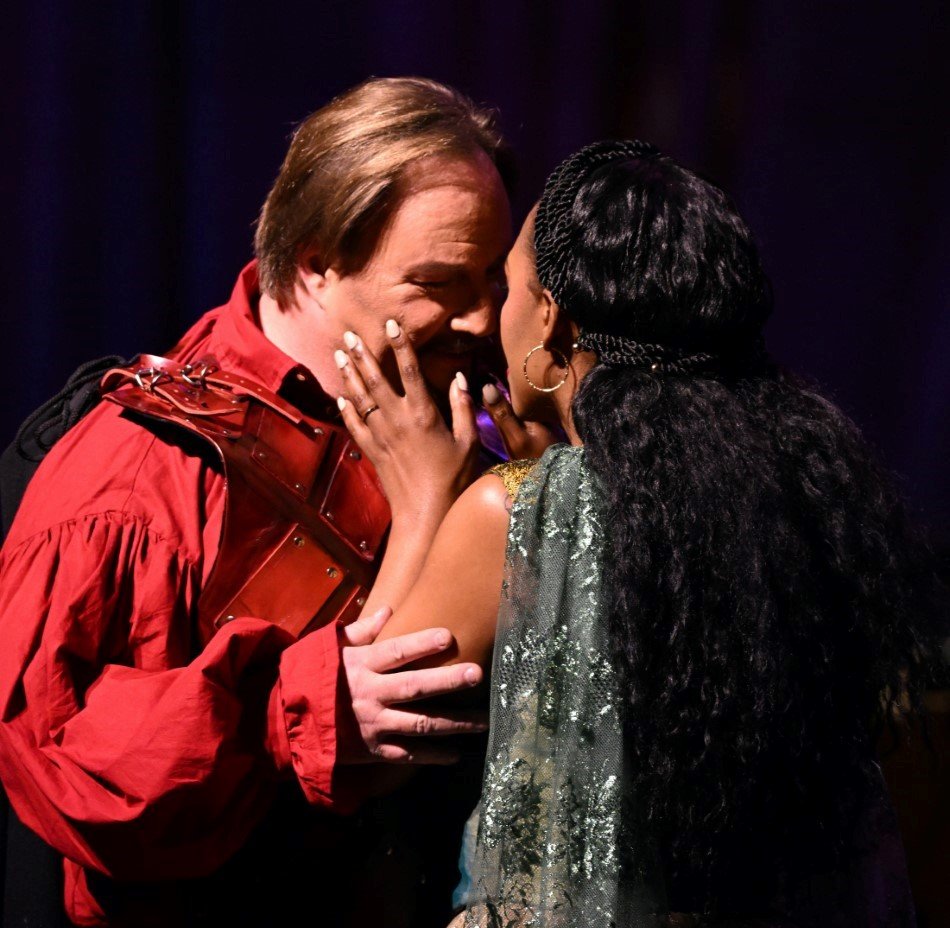
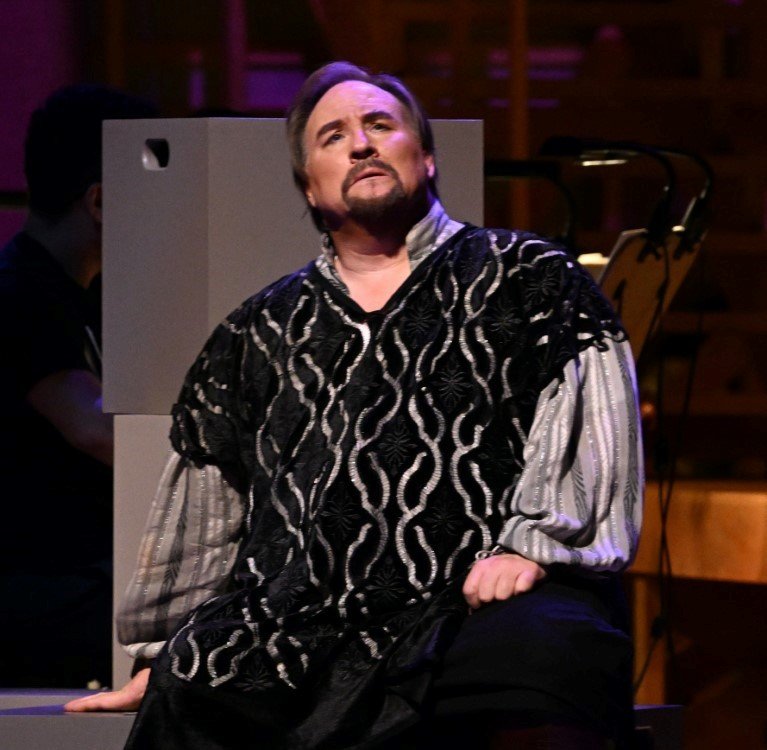
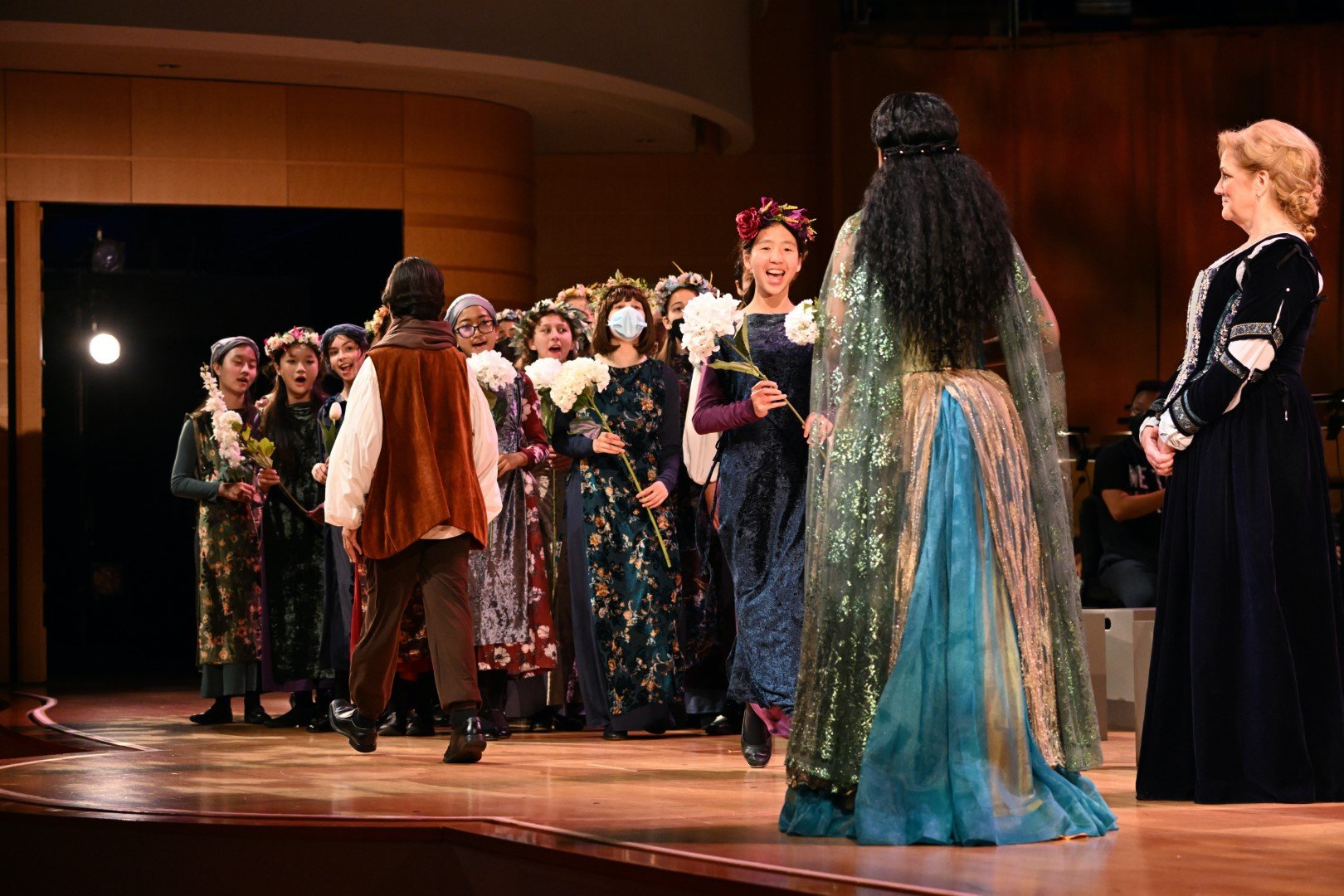
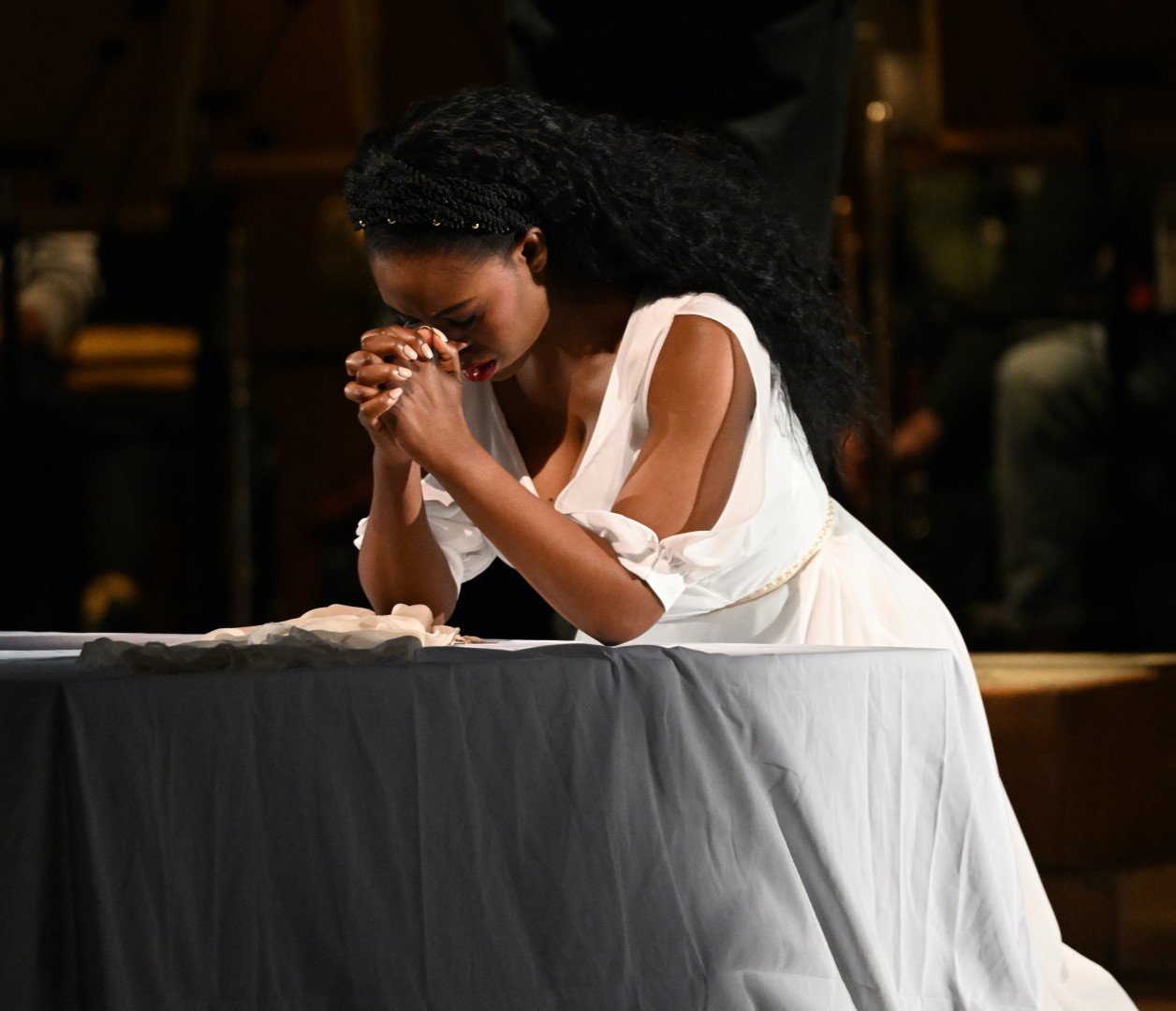
American tenor Carl Tanner gave the finest singing of the evening as the tragic moor Otello. His “Esultate!” in Act 1 pealed through the thick stormy orchestra with a majestic ringing tone. It’s a large, exciting voice capable of full-bodied slancio as well as softer shades, such as in the Act 1 love duet and Act 2 “Quel canto mi conquide” (where Verdi’s marking is dolce). Like the great Otellos of the past – Ramon Vinay, Jon Vickers, Placido Domingo – Tanner successfully portrayed Otello as a great warrior and a romantic hero who tragically falls victim to blind jealousy.
South African soprano Kelebogile Besong sounded indisposed most of the evening, failing to sustain pure tones and long legato lines in the love duet and ensemble singing. It wasn't until Act 4, alone by herself and without the weight of a full orchestra upon her, when her voice soared and floated beautifully in the Willow Song and Ave Maria.
Baritone Stephen Powell’s Iago was a evil puppet master hiding behind his smooth, urbane voice. “Era la notte” was sung intimately, sotto voce as written, with insinuating accents of the text – this Iago is wholly in command of his evil purpose.
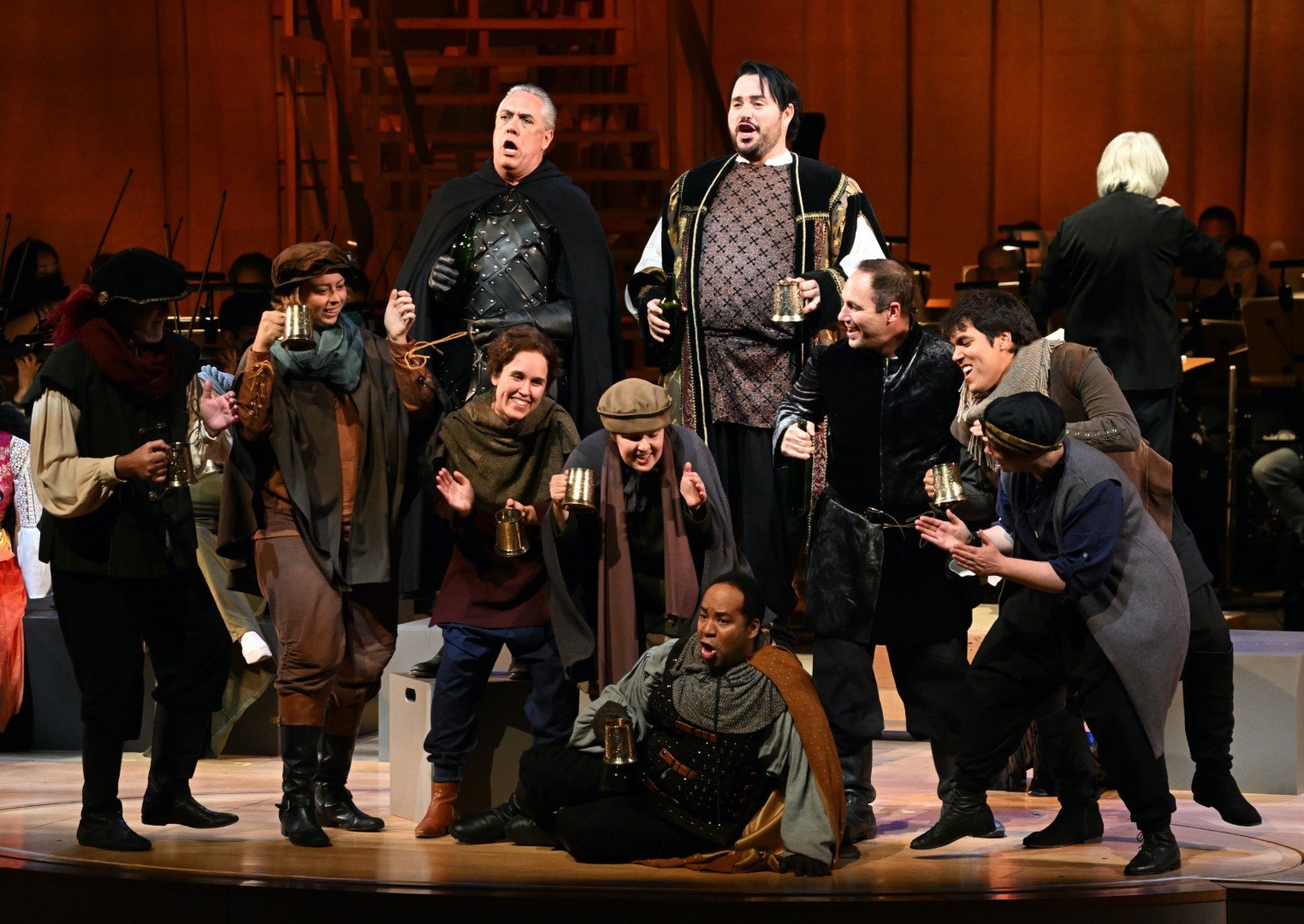
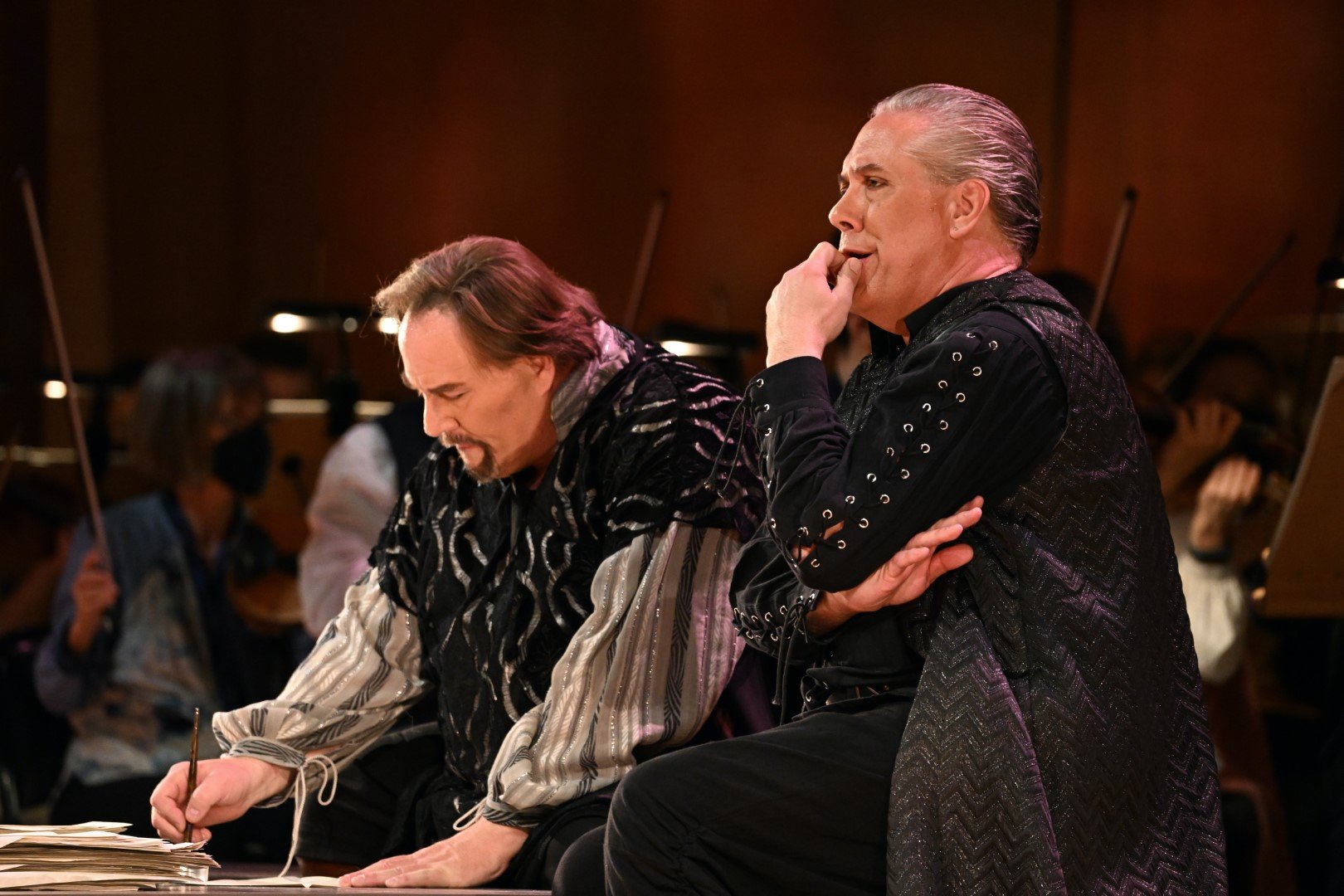
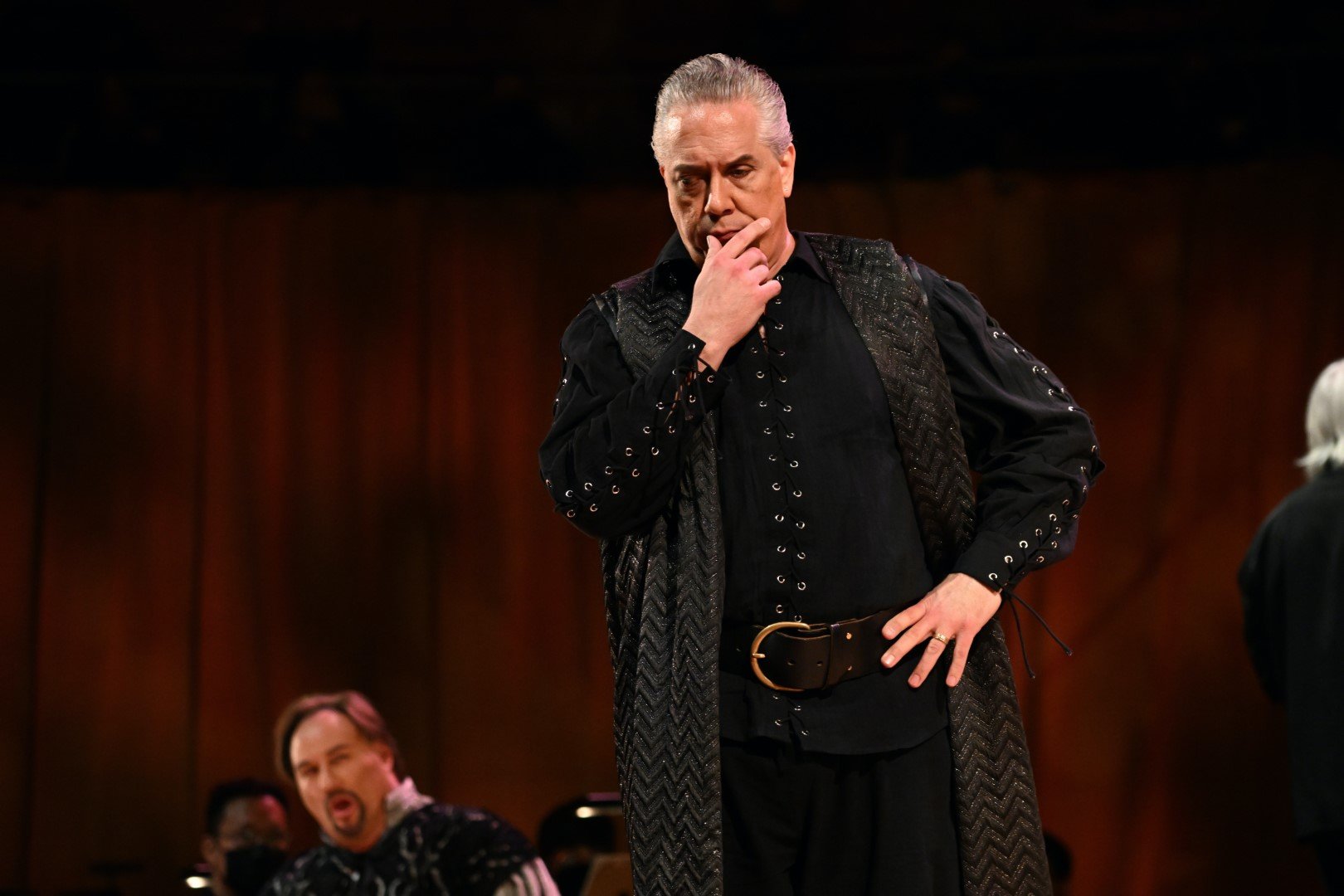
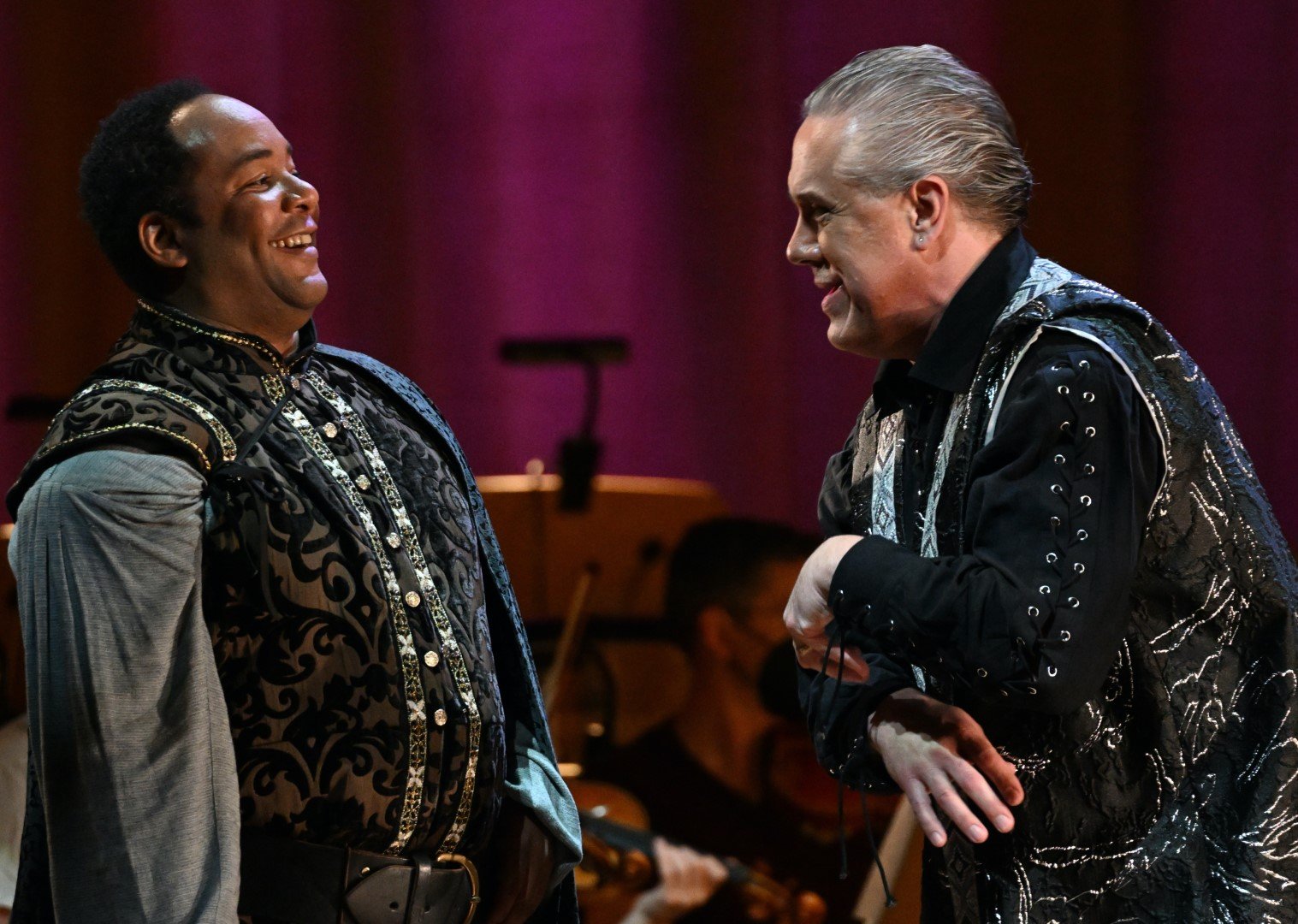
The role of Cassio is often relegated to a comprimario tenor, so it’s gratifying to hear Norman Shankle sing it with full-throated ardor and great élan. Bass John Paul Huckle sang Venetian ambassador Lodovico with booming authority. Also noteworthy was mezzo-soprano Margaret Lattimore’s Emilia, who nearly stole the finale from Otello with her unflinchingly dramatic singing.
The Pacific Chorale sang and acted magnificently in the Act 1 storm chorus and the campfire drinking chorus, as well as the Act 3 assembly scene. They were joined in Act 2 by the Southern California Children’s Chorus (and two dancers Sophia Oddi and Kayla Aguila) in a charming bucolic tribute to Desdemona.
Music Director of the Pacific Symphony Carl St. Clair took the helm of Otello’s fateful ship, so to speak, with auspicious results. The orchestral playing was topnotch with many memorable moments: the aforementioned storm scene, the sweetly intoned passage for three cellos leading to the love duet, the magnificent brasses in the assembly scene, and the tender restatements of the kiss motif in the strings, to name just a few.
Next season, Pacific Symphony will stage another Verdi masterpiece, Rigoletto. Search is on for a world-class baritone, tenor and soprano. The modern opera world may be dominated by vainglorious producers and directors who think they know better than the composers, but ultimately, opera is about singing and acting with the voice. We should all be mindful of these words of Vincenzo Bellini, who wrote to his librettist of I Puritani in 1834, “Opera, through singing, must make one weep, shudder, die.”
Truman C. Wang is Editor-in-Chief of Classical Voice, whose articles have appeared in the Pasadena Star-News, San Gabriel Valley Tribune, other Southern California publications, as well as the Hawaiian Chinese Daily. He studied Integrative Biology and Music at U.C. Berkeley.


